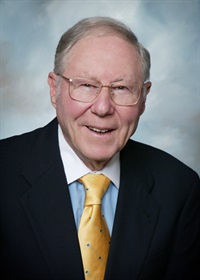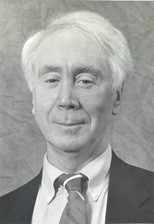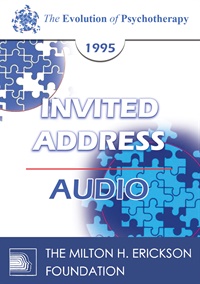EP95 Invited Address 10b - Control Theory in the Practice of Reality Therapy - William Glasser, MD
- Average Rating:
- Not yet rated
- Topic Areas:
- Invited Addresses | Reality Therapy | Psychotherapy
- Categories:
- Evolution of Psychotherapy | Evolution of Psychotherapy 1995
- Faculty:
- William Glasser, MD | Arnold Lazarus, Ph.D.
- Duration:
- 1:27:53
- Format:
- Audio Only
- Original Program Date:
- Dec 17, 1995
- License:
- Never Expires.
Description
Description:
Invited Address Session 10 Part 2 from the Evolution of Psychotherapy 1995 - Control Theory in the Practice of Reality Therapy
Featuring William Glasser, MD; with discussant Arnold Lazarus, PhD.
Moderated by Carol Kershaw, EdD.
Reality Therapy is completely based on control theory psychology. Dr. Glasser will explain this psychology and then explain how all the techniques of this therapy arise from control theory. The major techniques he will explain are 1) All we do from birth to death is behave; 2) All behavior discussed in therapy is chosen; 3) All behavior is made up of four closely related components: acting, thinking, feeling and physiology; 4) While problems may originate in the past, they all occur in the present; 5) When problems are solved, it is because in the process of therapy, clients are taught to make better choices than they are making when they begin therapy.
Educational Objectives:
- To explain Control Theory.
- To show how it supports Reality Therapy.
- To show how an individual can use this theory to supplement therapy.
*Sessions may be edited for content and to preserve confidentiality*
Credits
Faculty

William Glasser, MD Related Seminars and Products
William Glasser, MD, who received his MD degress in 1953 from Case Western Reserve University was an American psychiatrist. William was awarded an honorary doctorate in human letters by the University of San Francisco. Founder and Director of the Institute for Reality Therapy, he was authoer and editor of ten books on the topics of reality therapy and education. He was also the developer of Choice Theory. His ideas, which focus on personal choice, personal responsibility and personal transformation, are considered controversial by mainstream psychiatrists, who focus instead on classifying psychiatric syndromes as "illnesses", and who often prescribe psychotropic medications to treat mental disorders.

Arnold Lazarus, Ph.D. Related Seminars and Products
Arnold A. Lazarus, Ph.D., was Distinguished Professor at the Graduate School of Applied and Professional Psychology at Rutgers University. Lazarus served on the editorial boards of ten professional journals. He was president of the Association for Advancement of Behavior Therapy and received the Distinguished Service to The Profession of Psychology Award from the American Board of Professional Psychology. His Ph.D. was granted in 1960 from the University of the Witwatersrand, Johannesburg, South Africa. He has authored four books; co-authored, edited, or co-edited seven; and authoered or co-authoered more than 150 professional papers and chapters.


